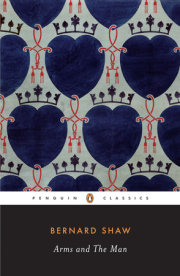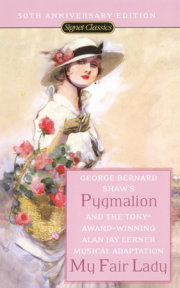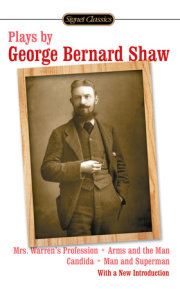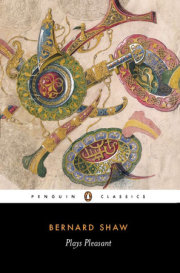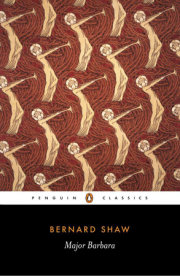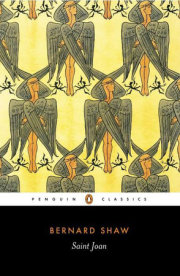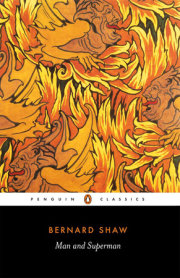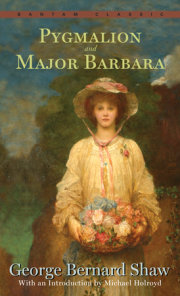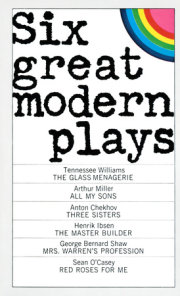Exclusive to Penguin Classics: the definitive text of Shaw’s brilliantly witty exposure of the British class system—part of the official Bernard Shaw Library
A Penguin Classic
Shaw wrote the part of Eliza Doolittle—“an east-end dona with an apron and three orange and red ostrich feathers”—for Mrs. Patrick Campbell, with whom he had a passionate but unconsummated affair. From the outset the play was a sensational success, although Shaw, irritated by its popularity at the expense of his artistic intentions, dismissed it as a potboiler. The Pygmalion of legend falls in love with his perfect female statue and persuades Venus to bring her to life so that he can marry her. But Shaw radically reworks Ovid’s tale to give it a feminist slant: while Higgins teaches Eliza to speak and act like a duchess, she also asserts her independence, adamantly refusing to be his creation.
This Penguin Classics edition is the definitive text produced under the editorial supervision of Dan H. Laurence, with an illuminating introduction by Nicholas Grene, discussing the language and politics of the play. Included in this volume is Shaw’s preface, as well as his “sequel” written for the first publication in 1916, to rebut public demand for a more conventionally romantic ending.
For more than seventy years, Penguin has been the leading publisher of classic literature in the English-speaking world. With more than 1,800 titles, Penguin Classics represents a global bookshelf of the best works throughout history and across genres and disciplines. Readers trust the series to provide authoritative texts enhanced by introductions and notes by distinguished scholars and contemporary authors, as well as up-to-date translations by award-winning translators.


